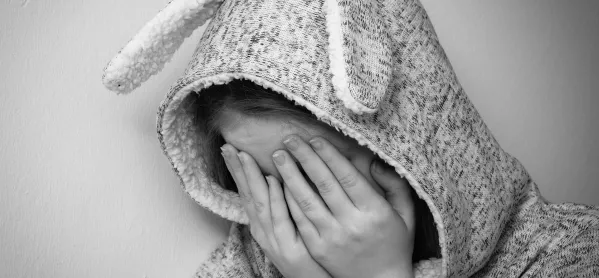An independent report has urged ministers to raise the age of criminal responsibility in Scotland to 16, and to set up a new youth justice system for offenders up to the age of 21.
The work, commissioned jointly by the charity Action for Children and Bruce Adamson, Scotland’s children and young people’s commissioner, also highlights the lack of secure accommodation for young people.
The report has been published today after the death of 16-year-old William Lindsay, who took his own life in Polmont Young Offenders Institution in October, two days after being sent there on remand.
About half of the 84 places in secure care in Scotland are occupied by young people from outside the country, the Kilbrandon Again report states.
It is also critical of the length of time that those who committed childhood offences can have to disclose them, with enhanced provisions meaning this can be the case until the person is 40.
Richard Holloway, the former bishop of Edinburgh, chaired the study of youth justice systems, more than 50 years on from the 1964 Kilbrandon report, which led to the establishment of the Children’s Hearings System (CHS). He stressed that an overhaul was “long overdue”.
While the Scottish government is bringing in legislation to raise the age of criminal responsibility from eight - the youngest in Europe - to 12, Mr Holloway called on ministers to “be more radical”.
He said: “The age of criminal responsibility in Scotland has been a matter of concern for a considerable period of time.
“We have a system envied around the world through taking a progressive, welfare-based approach towards children at risk or in trouble with a strong focus on prevention and early intervention.
“However, the criminalising of eight- to 11-year-olds has always been inconsistent with this approach.
“While we welcome the proposal to raise the age of criminal responsibility to 12, we do believe we can be more radical and increase the age of criminal responsibility in Scotland to 16.”
The report is critical of the current system of sending 16- and 17-year-olds to adult courts, and urges the setting-up of a new youth system.
It also calls for the CHS to record the circumstances of youngsters who are referred for help, whether they attend the hearings and whether their views are heard.
Children’s panels should reflect more closely the make-up of the communities from which most of the children and families they deal with come, the report advises.
Mr Adamson said: “This report rightly recognises the devastating impact of poverty and inequality on every aspect of children’s lives, including their attainment, mental and physical health and risk of being drawn into conflict with the law.
“It is clear that treating vulnerable children as criminals stigmatises them and can have a lifelong impact, including on education and future employment.”
Paul Carberry, director of Action for Children in Scotland, said that despite a fall in the number of children appearing before the courts and children’s hearings, there was a concern that “young people with the highest and most complex needs seemed to be most vulnerable to being involved in the adult criminal justice system”.
He added that support could be greatly improved for “children and young people in trouble”.
Mr Carberry said: “Fifty years on from the Social Work Scotland Act, the message is that we haven’t got there yet and our systems require an urgent review.”
A Scottish government spokeswoman said: “Raising the age of criminal responsibility to 12 is the right reform for Scotland at this time, and will mean that we are leading the way in the UK, ensuring no child under 12 will be treated as a criminal or accrue a criminal record.
“We know there is more to do to improve outcomes for children and young people who need care and support. And it is right that we keep all parts of that system under review, including children’s hearings.
“We will consider this report’s findings alongside the wider, independent care review that is underway.”





